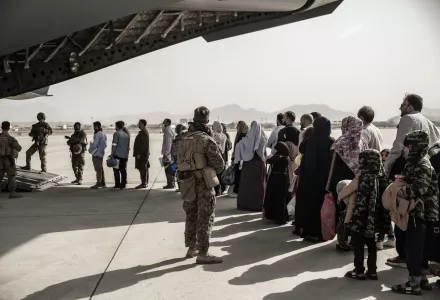International Security is America's leading peer-reviewed journal of security affairs.

Summary
A new theory of war duration suggests that strategic narratives account for the duration and end of the U.S. war in Afghanistan. A robust collective narrative in the United States focused on combatting terrorism abroad generated audience costs for inaction that pushed President Barack Obama (2009) and President Donald Trump (2017) to not only sustain but increase troops in Afghanistan. As the narrative weakened, audience costs for inaction declined and President Joe Biden ended the war (2021).
C. William Walldorf Jr., "Narratives and War: Explaining the Length and End of U.S. Military Operations in Afghanistan," International Security, Vol. 47, No. 1 (Summer 2022), pp. 93–138, https://doi.org/10.1162/isec_a_00439.



